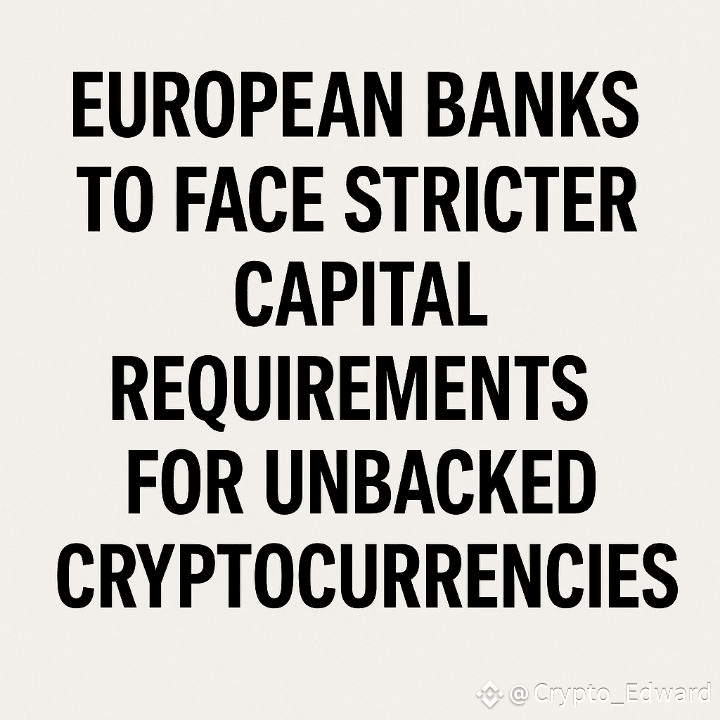
As reported by Cointelegraph, the European Banking Authority (EBA) has finalized new regulatory technical standards requiring banks within the European Union to hold significantly higher capital reserves against exposures to unbacked cryptocurrencies, such as Bitcoin and Ether. This move aims to standardize capital treatment for crypto assets across EU-based financial institutions.
The finalized framework, released on Tuesday, assigns specific risk weights to various categories of digital assets. Assets classified under Group 2, which includes unbacked cryptocurrencies like Bitcoin, are now subject to a general risk weight of 1,250%. Within this group, Group 2a refers to assets that meet the Bank for International Settlements’ criteria for hedging and netting, while Group 1b covers asset-referenced tokens tied to traditional financial instruments, carrying a risk weight of 250%. These classifications were initially introduced under the Capital Requirements Regulation (CRR III) and have been applicable since July 2024.
The EBA’s draft includes comprehensive methodologies for calculating and aggregating crypto-related exposures, covering credit, market, and counterparty risks. It also imposes strict separation rules, prohibiting the offsetting of positions between different cryptocurrencies, such as Bitcoin and Ether.
Once submitted to the European Commission, the Commission will have up to three months to approve, amend, or return the draft for revisions. If endorsed, the regulation will be delegated to the European Parliament and the Council for review. They will have a three-month objection period, extendable by an additional three months. If no objections are raised, the regulation will take effect 20 days after its publication in the Official Journal of the European Union.
The rules are expected to significantly impact banks currently holding cryptocurrencies on their balance sheets. For example, Intesa Sanpaolo, an Italian bank that purchased €1 million worth of Bitcoin earlier this year, would be required to hold €12.5 million in capital reserves under the new framework. Conversely, entities like Revolut, which operate their crypto services off-balance-sheet through Revolut Digital Assets Europe Ltd, are unlikely to be affected.
The EBA’s approach contrasts with regulatory developments in other regions. In the United States, the Federal Deposit Insurance Corporation (FDIC) announced in March that banks could engage in crypto-related activities without seeking prior approval. Similarly, Switzerland amended its DLT Act in April, enabling banks to custody tokenized securities and provide guarantees for stablecoin issuers within a clear legal structure.
In a parallel development, reports suggest that U.S. President Donald Trump is considering an executive order directing financial regulators to examine allegations of “debanking” within the crypto sector. Meanwhile, JPMorgan Chase is reportedly exploring crypto-collateralized loans — a sign of evolving attitudes toward crypto assets among U.S. financial institutions.
While the EU’s new rules aim to ensure financial stability, they may also discourage traditional banks from participating in the rapidly growing digital asset space — especially as decentralized finance (DeFi) and tokenization continue to reshape global financial services.

